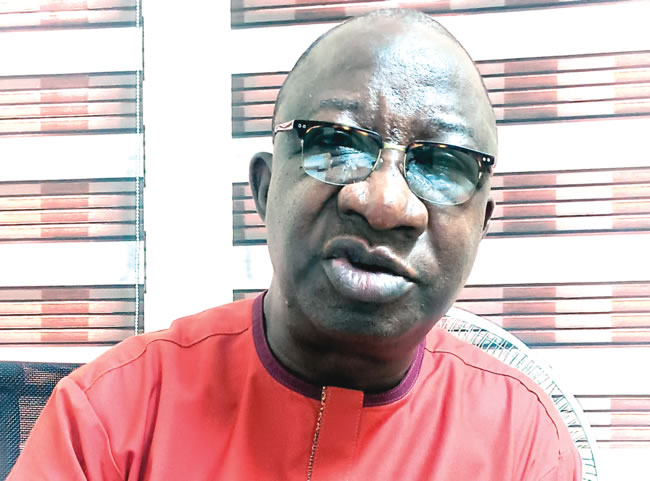Abdullah Ibraheem Olawale, a public analyst and affordable housing advocate, is a registered estate surveyor and valuer. In this interview with DAYO AYEYEMI, He speaks on the way to unlock the country’s dead assets and the importance of title’s perfection to Nigerians and economy. He is also of the view that government should title all lands in the country for effective administration.
Is the country doing well in the area of land administration, when compared with other developed countries?
It will be very difficult for anybody to say we are there, we are not yet there. The reason being that we don’t have any harmonised system yet. Though some people will say the Land Use Decree is a document that gives direction on land use and administration, but in the real sense, if you look at the North and the South, you will discover that there is still a lot of discrepancies in how we administer land in Nigeria. We need to look at this aspect in order to have a uniform system. One of the ways is to title all land in the country. Government should title all land in Nigeria. If that is done, administering the land will become so easy and straightforward.
If a geospatial approach is introduced to land structure, it means that no land is hidden. Government will have records of all lands available and will be able to say specifically the use which every parcel of land is being put to. So, administering such land now becomes easy. For example, if someone is applying for the use of a particular land that already belonged to somebody, because of the existing title, it would be easy for the government to know what the land has been designated for. It would be easy to know that the land is in the hand of government and it is being proposed for a particular use. So, giving a direction to such application will now be easy. There is already geospatial information, the coordinates are already being taken, the use of the land in the past already known, then charting the way forward for the best you of that land becomes easy. This is how the maximal use of land can actually be achieved.
Nigeria has a lot of dead assets; what can be done to unlock these assets?
One of the easiest ways to go about it is to improve our geographic information system, to divide the whole country into sections, so as to make it a lot easier for oversight function to be carried out on land use and its allocation.
Like you rightly said, most of the lands are not titled. Why is it so?
We don’t have baseline information on the land. We need information for this to be carried out. Even when the lands are not use effectively, the government already has an information. In Rwanda, that was what they did. Even though it was a smaller country, they started from somewhere. Let us first title the existing lands in the country. They did that through the use of GIS.
So how do we deploy GIS?
It’s already being used in Lagos State. How many states of the federation can actually boast of having such system that they can use and actually get information they need to be able to title the land. It becomes easier when you are administering land, you know that this particular land is for grazing, this particular section is for recreation and this particular area is reserved. Even the issue of land banking comes in.
A lot of countries have instances where they put a lot of premium on land banking. Land banking helps such country to be able to say okay, we are taking these parcels of land and keeping them for future use or we are proposing that for years to come, this is what we are using this land for. So it’s very important for us to start thinking in that direction and for every state to start imbibing the idea of being able to title its lands in conformity and consonant with the Land Use Act, since the law has not been abrogated.
What are the importance of perfection of title to land owners and real estate investors?
Section 28 of the Land Use Act talks about perfection of title. It says that any transaction in land between two parties must be presented before the governor of that state where the transaction is consumated for his consent or for him to sign off and say I agree to this transaction that you have done. In law, to have these transactions not registered is not against the rule, but it only means that you have not finished the process and the process could only be completed when the governor grants his signature or append the document and say the transaction between party A and Party B has become effective by virtue of certain other processes that have taken place. That is what we called Governor’s Consent. It’s emphatic to say that for the process to be completed, the governor must append his signature. A certain number of steps must take place for that to be completed. In doing so, you will realise that, only a small fraction of the transactions being consumated everyday are actually presented at the Land Registry for registration.
Why is this so?
The reason is not farfetched. The process is still cumbersome. The government has been trying over the years to improve on the system. At the Land Registry of the Land Bureau in Lagos, for example, you discover that a lot of things have been put in place. The Electronic Documentation Management System was put in place at the Land Registry, then the record update and other methods of electronic documentation have already been put in place at the Land Services and Land Regularisation Department. With this, retrieving information and accessing information or making enquiries about what’s been done at the Land Bureau becomes easy. The target should be anywhere in the world. You should be able to recall any document if you have details relating to that documentation. You should be able to make necessary payment, sign in, get the information and sign out. And if it’s about documentation too, present the document for documentation; it would be accepted, processed and, at the end of the day, the final outcome will be received. But like I said before, more than 70 percent of the documentations are not presented at the Land Registry for registration.
What are the resultant effects?
The resultant effects are that when those documents are presented, they have multiplier effects. The statutory fees and other charges are paid to the governments. The moment such documents become registered, they become tools that can be used as security and collateral with financial institutions. And where that happens, it means that there can be cases of subsequent transactions which will require Governor’s Consent. And for that too, payment ought to have been made. So, as you see, it’s a tool of revenue for government and, at the same time, the economy will become very vibrant because the more people are buying houses, the more people are getting titles for those properties, the more people are going to the bank when they have collaterals to secure loans, and more actions and constructions are going on within the economy. If you limit such activities from taking place because of bureaucracy and other issues, you are limiting the amount of activities which should be in that particular economy at that time.
READ ALSO FROM NIGERIAN TRIBUNE






